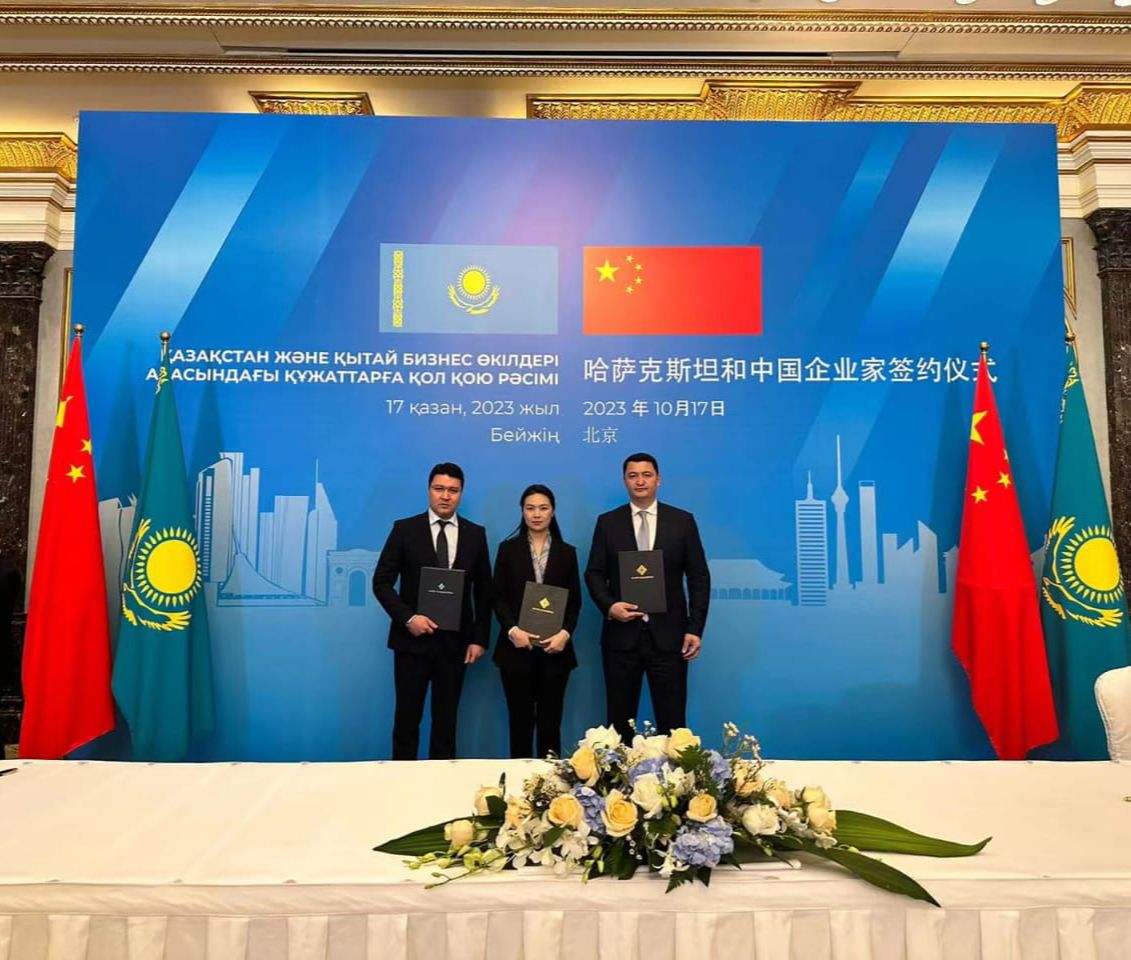
Memorandum on Cooperation and Partnership between the Medical Center Hospital of the President’s Affairs Administration of the Republic of Kazakhstan, Astana Medical University and BGI Genomics (PRC) was signed in the framework of the working visit of K.Tokayev, the President of the Republic of Kazakhstan to the People’s Republic of China. The signing was attended by Rustam Albayev, Director of Medical Center Hospital of the President’s Affairs Administration of the Republic of Kazakhstan and Kamalzhan Nadyrov, Chairman of the Executive Board, on behalf of the Astana Medical University.
The agreement envisages the establishment of the Genomic Research Institute in Kazakhstan at Medical Center Hospital of the President’s Affairs Administration of the Republic of Kazakhstan and Astana Medical University. The Genomic Research Institute will focus on the development, implementation and improvement of genomic technologies in the diagnosis and treatment of a wide range of socially significant diseases, as well as training of Kazakhstani doctors - geneticists.
BGI Genomics (PRC) will provide the necessary equipment for the establishment of the Genomic Research Institute, train staff both in China and in the Republic of Kazakhstan.
In its turn, Medical Center Hospital of the President’s Affairs Administration of the Republic of Kazakhstan will provide a ready platform for research in this area. Since 2018, a modern personalized genomic laboratory has been successfully functioning at the Hospital. The Chief of the Laboratory is Dr. Gulshara Abildinova, professor, chief geneticist of the Ministry of Health of the RK. The division is equipped with modern equipment (sequencers, amplifiers, etc.) and provides a wide range of services in the diagnosis of genetic pathology, both hereditary and oncological. New types of tests are being actively introduced; to date, 54 tests are being performed.
Cooperation with China will allow expanding the diagnostic capabilities of genetic research in Kazakhstan, upgrade equipment directly from the manufacturer. It will allow introducing a contingent model of prenatal screening, improving detection of orphan diseases, and conducting scientific research in this area.




